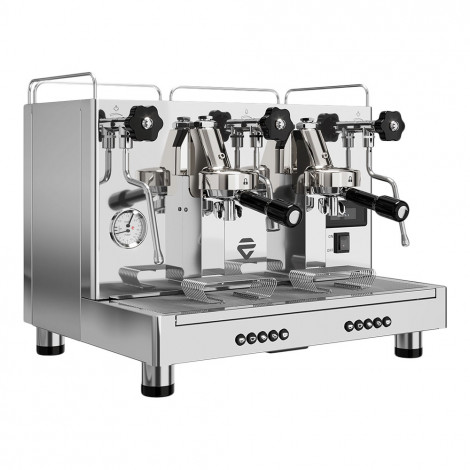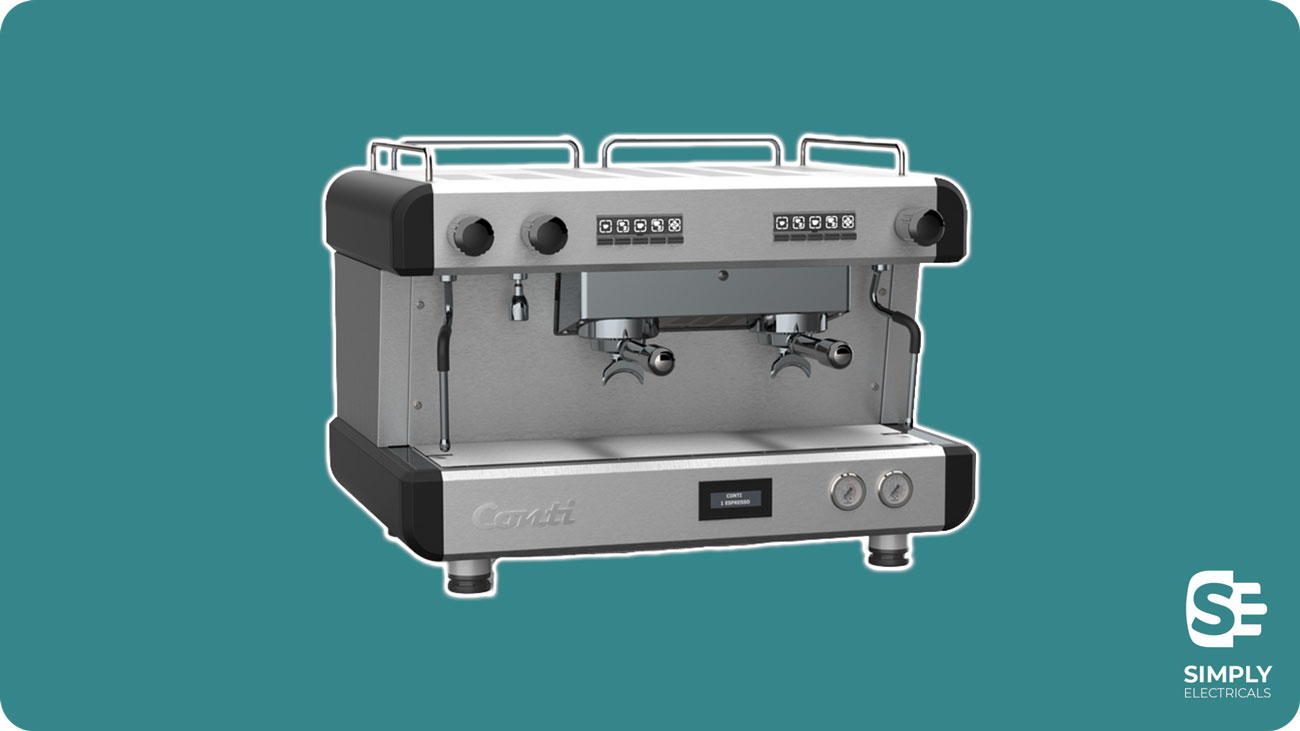Nowadays, we have more and more choices about where we get our coffee from. Bean to cup and espresso machines make great commercial pieces of equipment, but they are usually inappropriate for at home usage.
Coffee machines usually fall under the umbrella of either commercial or at home, but what exactly is the difference between the two?
What is a commercial coffee machine?
A commercial coffee machine is an industrial machine commonly used in cafes and restaurants to make coffee-based drinks.
They are designed to work to meet high demands, producing continuous espresso shots while maintaining a high quality end result.
Reliable commercial coffee machines will last you years if they are looked after and used correctly.
What types of commercial coffee machines are there?
The two most common types of commercial coffee machines are bean to cup machines and espresso machines.
Bean to cup coffee machines have a built in grinder, meaning all you need to do is simply add the beans to the machine. It will grind the beans, heat the water and dispense fresh coffee at the touch of the button.
You will usually find bean to cup machines in offices, hotels and cafeterias.
Espresso machines are manual pieces of equipment, which brew the coffee by forcing pressurised water through a puck of ground coffee and a filter to produce an intense, quality coffee.
What is a domestic coffee machine?
A domestic coffee machine is a smaller machine that you can use in the comfort of your own home to make coffee based drinks.
They don’t typically need to be plugged into the water mains, and instead simply require the water tank to be filled up as and when you use it.
What types of home use coffee machines are there?
There are a variety of different at home coffee machines on the market to choose from, including:
- Drip coffee makers
- Pod coffee machines
- French press coffee makers
- Cold brew coffee makers
- Espresso machines
- Filter coffee machines
What is the difference between a commercial coffee machine and a home use coffee machine?
The main difference between commercial and at home coffee machines is the capacity of coffees in which they can make.
Commercial coffee machines are made to be reliable, with some machines producing over 800 cups of coffee per day. Whilst at home coffee machines are usually designed for 5-6 coffees per day.
Commercial coffee machines also tend to be far more expensive than at home machines, due to the equipment needed to achieve high quality coffees. Whilst some at home machines make barista standard coffees, you may end up paying slightly more for them.
How much power does a commercial coffee machine need?
The wattage of your coffee machine will depend on what kind of machine you actually use. All coffee machines will work on 240v power, but the wattage can vastly differ.
If you wanted to make 10 espresso shots, it would take around 1.56 kilowatt-hours of energy, as they use around 100-1500 watts of power.
How much power does a home coffee machine need?
Again, this will depend on what type of machine you choose. Standard filter coffee machines use the least amount of electricity out of all at home machines, using as little as 650 watts depending on the model you choose.
To find out more, read our guide on coffee machine energy usage.
Pros and cons of a commercial coffee machine
Commercial coffee machines are popular amongst the hospitality industry due to the fact they are reliable, offer flexibility and high quality coffee.
They often come with many customisation features, such as:
- Water temperature
- Water pressure
- Coffee strength
- Ability to create a variety of different hot coffee based drinks
However, some commercial machines, such as espresso machines, can be complex to use and would require training of staff or team members.
Large commercial machines also require connection to the water mains, which may be difficult if you have limited space or the connection to the mains is already being used by something else.
Pros and cons of a home use coffee machine
Owning at home coffee machines do come with a variety of different benefits.
Firstly, it allows you to have delicious coffee on demand whenever you want, allowing you to enjoy your favourite coffees in the comfort of your own home.
Having your own machine means you don’t have to pay the increasing prices from coffee shops, and the investment of the machine will eventually pay itself off.
However, you need to remember with your own coffee machine you are responsible for cleaning and maintenance of it. If you don’t care for it properly, this will dramatically affect the lifespan of the machine.
Not only this, but you will also need to maintain the upkeep of your products such as beans, pods, milks and syrups if used.
How do I know what type of coffee machine I need?
When deciding on the type of machine that is right for you, you should consider your specific needs.
For example, if you work in a busy office environment with numerous people who enjoy having coffee on demand, a commercial bean to cup machine might be the best option for you, such as the Siemens TI351209GB EQ.300 Bean to Cup Fully Automatic Freestanding Coffee Machine.
This way, team members can choose the coffee they like best all within the comfort of the office.
If you work from home, there is no need for you to look into buying a commercial machine. Instead, look at smaller machines that will keep up with your singular demand, like the Nescafe Dolce Gusto Genio S Touch by De’Longhi.
For example, if you like to have a few coffees throughout the day, an at home espresso or filter coffee machine would work fine.
If you are planning on starting your own small coffee shop, you would seriously need to consider purchasing a coffee machine big enough to keep up with demand, such as an espresso machine with a few group heads, like the The LELIT GiuliettaX coffee machine.
It features two group heads and steaming wands, making it ideal for small start-up food and drink businesses.








